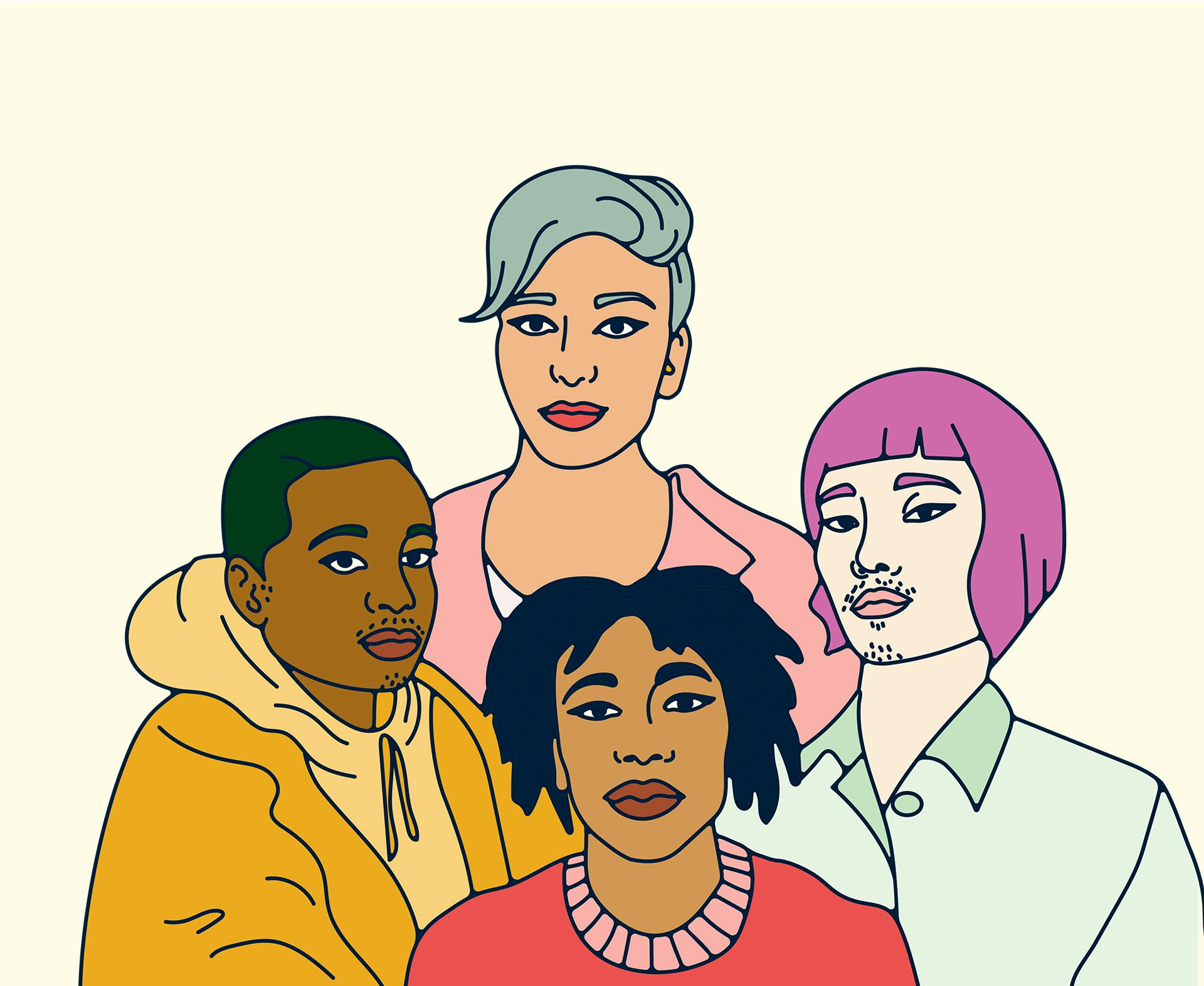Illustrated by Sabrina Bezerra
We all have pivotal things we cannot leave the house without. Phone? Bank card? Keys? For me, and many of my Trans and GNC (Gender Non-Conforming) siblings, it’s going to the bathroom.
For Trans and GNC folk, public toilets are a core hotspot for violence and harassment. What for most people is a completely natural urge has become something incredibly distressing for Trans and GNC people. So before I/we go outside, it’s time to check the bladder. But unfortunately some things we have absolutely no control over – periods.
Take all the negative connotations usually linked with periods (blood, cramps, discomfort), and now envision having to navigate all of those experiences in a space that is not designed to aid you. If peeing in public toilets is a challenge in itself, being a man who menstruates is top tier difficulty.
Navigating binary toilets isn’t as simple as occupying the spaces that best compliments your gender identity, or gender expression at that given moment. Not only does this completely invalidate those who genuinely do not conform to any given binary, it also presumes the gaze of others corresponds with that of our own.
“
Navigating binary toilets isn’t as simple as occupying the spaces that best compliments your gender identity.
For me, the probable choice of binary would be the “men’s” loo, but in most cases my safety is at risk. Every time I enter a “male only” space, I am hit with the peculiar sensation of knowing this is the space I am expected to select (from a history of being physically assaulted, beaten, and removed from cis female spaces). And yet, all I feel is discomfort, distress, and disgust.
Let me be clear: I am a proud, unapologetic Trans man. However, identifying this way does not automatically mean I am immune from the perils of cis men. If it did, I would not be another sexually traumatised statistic. According to the Stonewall’s ‘LGBT in Britain’ Trans Report of 2018, two in five Trans people (41%) had experienced a hate crime in that year – and these are just the ones that were reported.
Another core issue I find when steering survival in binary male toilets is the absurd lack of bins. Whilst I don’t believe adding more bins to the cis male toilets would dramatically increase hygiene (or safety) levels, as a man who menstruates it would significantly aide my comfort levels whilst navigating those spaces – and arguably theirs too.
I am not too shy to admit that on a bad day, when I am particularly fed up with the systems designed to keep us uncomfortable, I’ve had to leave my dirty tampon on the floor. You can’t flush tampons, so what else am I supposed to do with it? Considering most cis men can barely utter the word “period”, I often fantasise of the look of sheer horror on their faces as they walk into a cubicle to find a dirty tampon on the floor.
I realise that as a man who menstruates, perhaps my need for a sanitary bin comes with more urgency than most men, and although some may think campaigning for bins is extreme, Trans folk have been trying to expand the conversation around periods for years.

Ultimately, there is physically no designated place for me to dispose of my sanitary products. And that’s if I am lucky enough to have some with me, because I have never seen a sanitary product machine in a ‘male only’ space.
Even if we were to remove the entire notion of a Trans man, should we not be normalising getting men comfortable with sanitary products regardless? We need to dismantle the idea that anything related to menstruation is under the obligation of women because of this tired stigma that periods are too gross, or beneath, cis men.
Having tampon machines in ‘male only’ spaces would not only be a soothing wink in the direction of Trans men occupying that space, but also promote the idea that maybe it is completely fine for cis men to be seen interacting with sanitary products on behalf of their loved ones who need it.
I will do everything I can to avoid areas prone to danger, public bathrooms being one of them. So much so, I have a mental note of every establishment that is a safe space. Whilst safety is never guaranteed with staff, the general public, or overall contexts of situations, these spaces are ones with definite gender-neutral bathrooms.
Alternatively, see also: your local park (my best friend jokes I have peed behind every bush in London). Whilst I wish I could sit here and hide behind how cool and natural it is to pee amongst the pigeons, the harsh reality is that it merely feels safe. It is my safest, most comfortable option. Although the comfort side of outdoor toilet experiences becomes questionable when it comes to menstruating, changing my tampon in a dark bush at night still tends to trump navigating binary male loos.
The Trans toilet experience is an entire world of hugely differentiating navigations, with comforts and coping mechanisms that depend solely on the individual. Saying this, I personally know of no Transgender individual who feels wholeheartedly safe when they navigate public loos.






